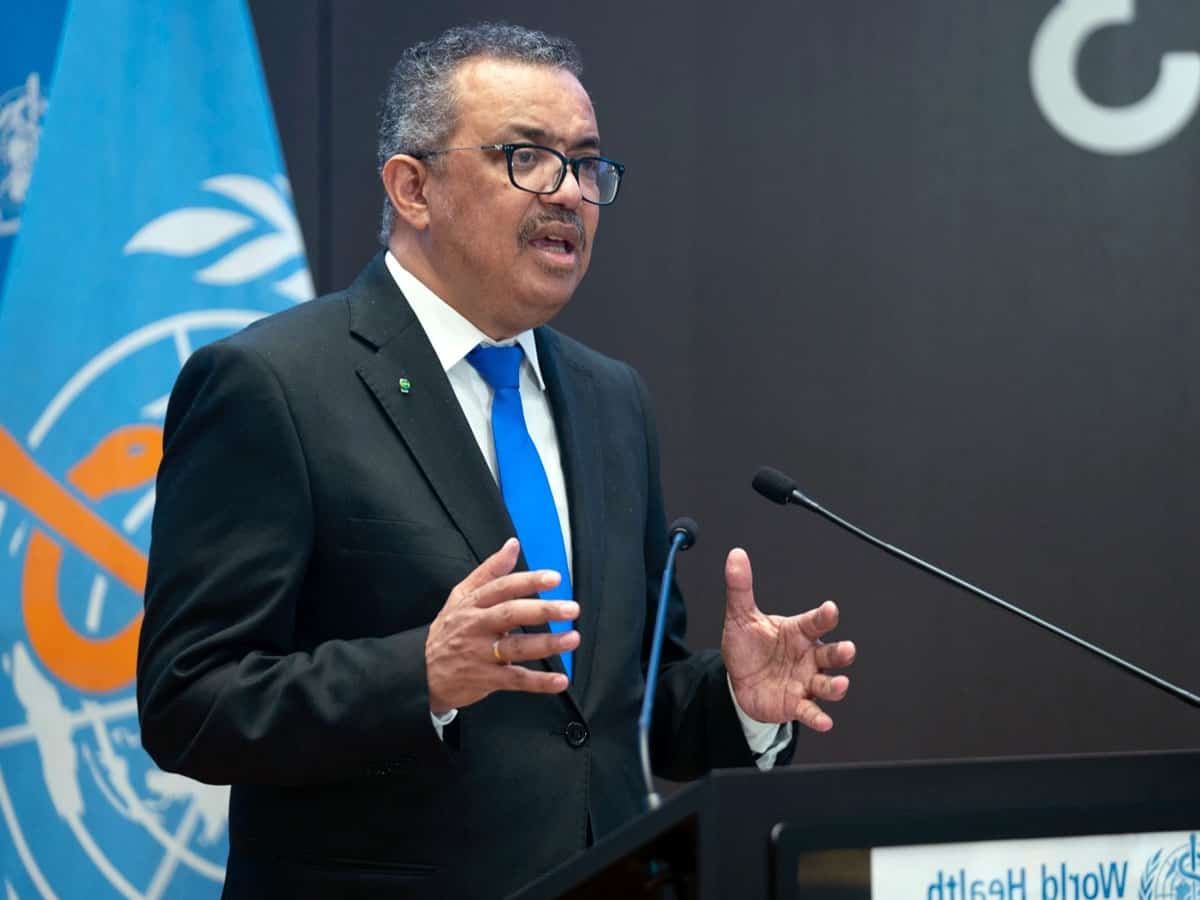
Geneva: The World Health Organization (WHO) has called on countries that are starting to lift Covid-19 measures to do so in a steady and slow way, as recent data have shown a sharp increase in coronavirus-related deaths around the world.
“Since the Omicron variant was first identified just 10 weeks ago, almost 90 million cases have been reported to the WHO, more than were reported in the whole of 2020. We are now starting to see a very worrying increase in deaths in most regions of the world,” WHO Director General Tedros Adhanom Ghebreyesus told a press briefing.
He reiterated his concern over the narrative taking hold in some countries that “because of vaccines, and because of Omicron’s high transmissibility and lower severity, preventing transmission is no longer possible and no longer necessary.”
“More transmission means more deaths. We are not calling for any country to return to so-called lockdown. But we are calling on all countries to protect their people using every tool in the toolkit, not vaccines alone,” he said. “It’s premature for any country either to surrender or to declare victory.”
According to Dr. Maria Van Kerkhove, technical lead of the WHO’s Health Emergencies Program, more than 22 million cases have been reported to the WHO in the past seven days, largely driven by the Omicron variant. More concerning right now is that the past four weeks have seen a sharp increase in the number of coronavirus-related deaths around the world, which “shouldn’t be happening at the present time when we have tools that can actually prevent this.”
Commenting on reports that certain countries have started to relax their Covid-19 restrictions, Van Kerkhove urged caution “because many countries have not gone through the peak of Omicron yet” and “now is not the time to lift everything all at once.” She said that those countries should do so “in a steady and in a slow way, piece by piece,” because this virus is quite dynamic.
Dr. Mike Ryan, executive director of the WHO’s Health Emergencies Program, echoed that countries should chart their own paths in lifting the measures instead of following blindly what the other countries is doing.
“I think it’s a transition phase for many countries, not every country is in the same situation,” he said. “Those countries that are making decisions to open up more broadly also need to be sure they have the capacity to reintroduce measures with community acceptance quickly if needed. So as if you open the doors quickly, you better be very well able to close it very quickly as well.”

